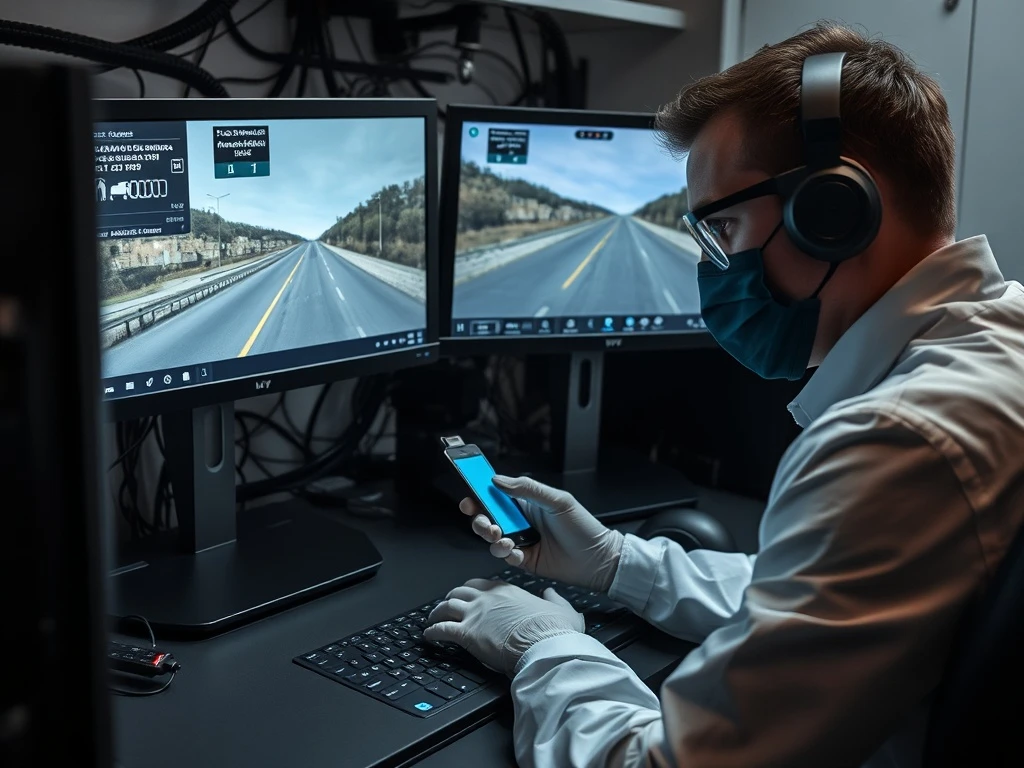When critical dashcam footage vanishes after an accident, forensic data recovery becomes the last line of defense for preserving vital evidence. Recent advancements in digital forensics have proven remarkably effective in rescuing seemingly lost Tesla dashcam recordings that could make or break insurance claims and legal cases.
Understanding Dashcam Data Vulnerability
Dashcams operate on a continuous loop recording system. Tesla vehicles specifically use a one-hour rolling memory buffer. Unless manually saved through the dashcam icon or “On Honk” feature, footage gets automatically overwritten. This system design creates significant data preservation challenges during unexpected incidents.
The German Tesla Case Breakthrough
In a recent German case, a Tesla Model 3 owner experienced a crash where crucial footage disappeared from both SentryClips and RecentClips folders. The USB drive suffered corruption, and standard recovery tools only retrieved broken, unplayable fragments. Professional forensic data recovery specialists intervened with advanced techniques.
Advanced Forensic Data Recovery Techniques
Technicians performed bit-level forensic analysis, scanning raw memory sectors rather than relying on directory structures. They identified and reassembled fragmented MP4 segments by leveraging FAT32 file system behavior. Deletions remove directory entries but leave data blocks intact until overwritten. Through intelligent block analysis and fragment stitching, experts reconstructed the complete crash video with timestamps and environmental context.
Why Dashcam Footage Gets Lost
Several factors contribute to dashcam data loss:
- Continuous overwrite cycles erase unsaved footage
- Storage media corruption from constant read/write cycles
- Power interruptions during critical recording periods
- File system errors that make data inaccessible
Preventing Dashcam Data Loss
Proactive measures significantly reduce data loss risks:
- Use high-endurance storage devices with minimum 64GB capacity
- Manually save critical clips immediately after incidents
- Remove storage media after accidents to prevent overwriting
- Avoid DIY recovery attempts that might overwrite recoverable data
Forensic Data Recovery Success Rates
Professional forensic data recovery labs achieve success rates exceeding 90% for dashcam footage recovery. These specialists use specialized equipment and techniques that differ significantly from consumer-grade recovery software. Their methods preserve data integrity and provide verifiable forensic reports acceptable in legal proceedings.
Legal and Insurance Implications
Recovered dashcam footage through forensic data recovery can expedite insurance claims by 40-60%. Insurance companies report 27% fewer disputed claims when dashcam evidence is available. The forensic verification process adds credibility that often bypasses lengthy investigation procedures.
Conclusion: The Forensic Safety Net
Dashcam footage serves as an impartial eyewitness, but its preservation isn’t guaranteed. The German Tesla case demonstrates both the fragility of recording systems and the impressive capability of modern forensic data recovery. With recovery success rates consistently high, these specialists provide a crucial lifeline for retrieving vital evidence from seemingly lost data.
Frequently Asked Questions
How long does forensic data recovery take for dashcam footage?
Professional forensic data recovery typically takes 2-5 business days depending on damage severity. Complex cases involving physical media damage may require additional time.
Can overwritten Tesla dashcam footage be recovered?
Yes, if new data hasn’t completely overwritten the previous recording. Forensic experts can often reconstruct partially overwritten files through advanced data carving techniques.
What makes forensic data recovery different from regular data recovery?
Forensic data recovery focuses on preserving evidence integrity and maintaining chain of custody. It uses legally defensible methods and provides verification reports acceptable in court proceedings.
How much does professional forensic data recovery cost?
Costs typically range from $300 to $1,200 depending on case complexity. Most reputable labs offer free evaluation and only charge for successful recovery.
Can I attempt DIY recovery before seeking professional help?
We strongly advise against DIY attempts. amateur recovery efforts often cause further data overwriting and may compromise forensic integrity. Immediately stop using the storage device and consult professionals.
What storage media works best for Tesla dashcams?
High-endurance USB drives or SD cards specifically designed for continuous writing. Avoid consumer-grade flash drives that may fail under constant read/write cycles.


